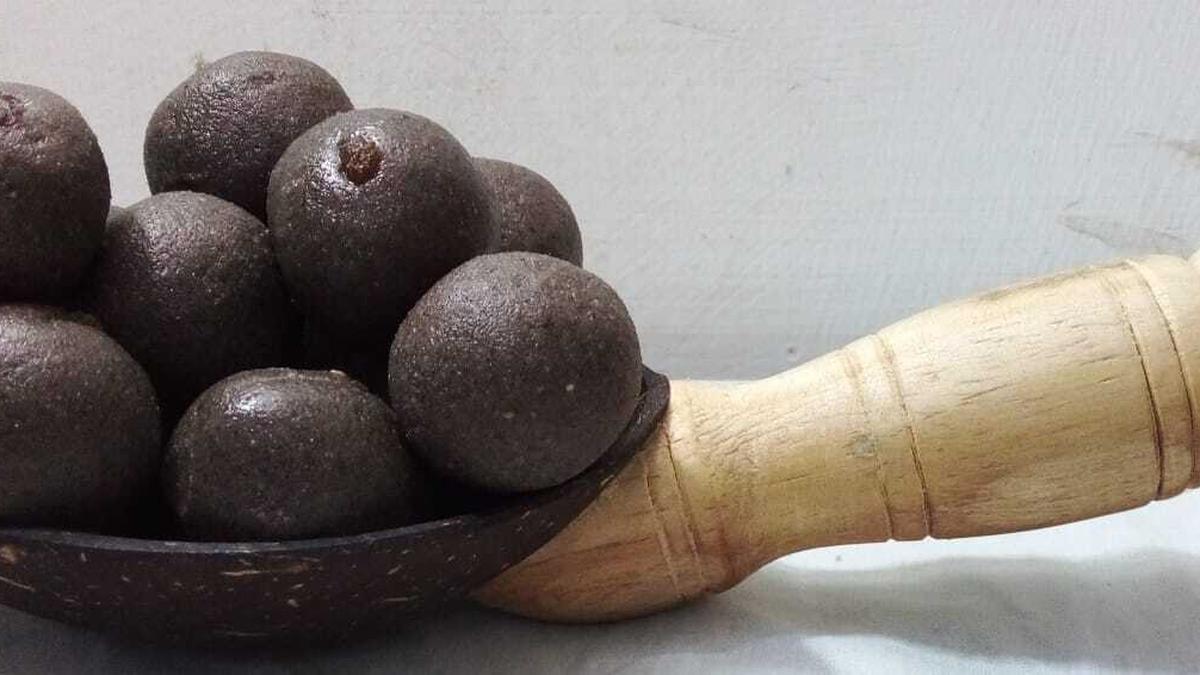
Sustainability in a nutshell
The Hindu
Kamarkat Srini and his team give out-of-work coconut shells a fresh new start in kitchens, cafes and restaurants
Kamarkat Srini. That name would likely spark a glint of recognition in the eyes, if the reader is from Chennai, salivates over traditional healthy sweets, is a card-carrying follower of veganism and pops in at organic food markets.
With a surfeit of traditional sweets on his food enterprise Kottivakkam-based Marabhu Suvai’s carte du jour, R. Srinivasan — to whom that sweet-sounding moniker (pun intended) belongs — offers something beyond the norm for the sweet tooth.
And he also offers a novelty to the hand that wields cutlery — spoons and ladles finely crafted from coconut shells. This pursuit has in fact, put his sweets-making business in the shade — in the shade of coconut trees. His enterprise, SN Crafts makes spoons, ladles and customised teapots with coconut shells allied with handles made of teak and pine wood. Surveying these products, one is left in no doubt about which element has star billing: it is the humble coconut shell, with all the other elements smugly content playing a supportive role to it.
If the reader has not made the connection yet, Kamarkat candy, typically made from the rich, fragrant flesh of the coconut, led Srinivasan to appreciate everything associated with cocos nucifera, even what would qualify as chaff. The coconut shells left behind after the meat is grated for making Kamarkat and other coconut-based sweets, caught his fancy.
For nearly five years now, he has devoted himself to upcycling these shells, giving them a fresh start, a second career in kitchens and cafes; and also a place in homes. The coconuts are cherry-picked, with only mature, organic country-breed coconuts chosen for the candy, leaving the shells to be repurposed for his ladles and spoons. On the supply chain are farmers from Papanaickenpalayam in Coimbatore and Udumalpet in Tirupur, and at home, an organisation in Adyar with a sprawaling campus dotted with 200 coconut trees.
Srinivasan’s approach to sustainability, as exemplified by his enterprise, might hark back to the traditional homegrown wisdom of reusing and repurposing, but is driven by a fiercely modern sense of innovation.
Srinivasan’s father-in-law, a skilled carpenter, was instrumental in helping him create customised machinery to carve the shapes of the ladles and spoons, blending traditional craftsmanship with modern innovation. Kamarkat Srini and his business partner Nagarajan Mani took it a couple of notches higher: spending one year in further customisation of the machinery.

A roadshow was organised here on Saturday by PALS (a voluntary initiative led by IIT alumni), bringing together academic leaders from across Kerala to advance engineering education in the State. The event witnessed participation from over 17 engineering colleges across Thrissur, Palakkad, and Ernakulam districts.

 Run 3 Space | Play Space Running Game
Run 3 Space | Play Space Running Game Traffic Jam 3D | Online Racing Game
Traffic Jam 3D | Online Racing Game Duck Hunt | Play Old Classic Game
Duck Hunt | Play Old Classic Game










